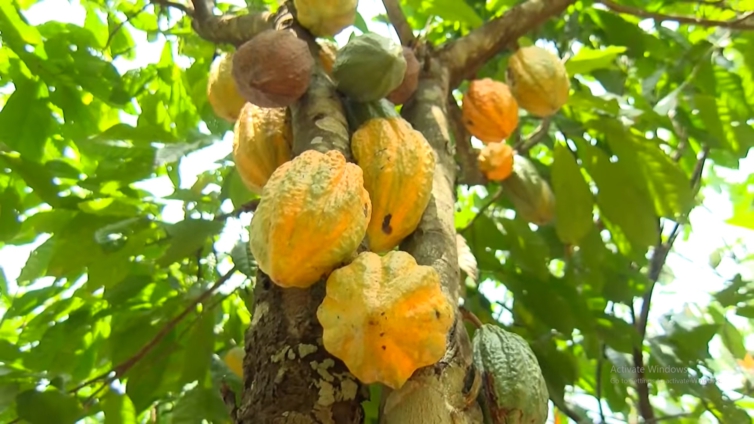Ghana’s COCOBOD will use part of a $200 million World Bank loan to rehabilitate plantations destroyed by the cocoa swollen shoot virus, which causes drops in yields and kills trees, the regulator’s deputy Chief Executive in charge of operations said on Thursday, February 15, 2024.
The disease has wiped off about 500,000 hectares of farmlands and reduced cocoa output from the West African nation, the world’s second biggest cocoa producer after neighbour Ivory Coast.
Ghana’s output declined to 600,000 metric tons last year after peaking at 1.048 million tons in the 2020/21 season, as the cocoa swollen shoot virus, aging plantations, illegal mining and smuggling took a toll on the sector.
A total of $132.8 million of the loan secured by the government last year and the counterpart funding will finance Cocobod’s rehabilitation of farms and help to enhance knowledge on the virus strains, a project information document showed.
“The rehabilitation will take a minimum of five years to start getting economic production,” Cocobod’s Emmanuel Opoku told Reuters, adding that efforts had been hampered by the country’s economic crisis and the board’s limited funds.
The board will take over disease-infested farms, cut and replace sick cocoa trees, aiding growth to a fruiting stage before handing them back to farmers.
In 2018, Cocobod used part of a $600 million Africa Development Bank (AfDB) loan to rehabilitate aging plantations and those affected by the disease.
But the programme, originally meant to cover 156,000 hectares of plantations, was caught up in Ghana’s worst economic crisis in a generation during which inflation spiralled and the cedi currency depreciated sharply, Opoku said.
He said the AfDB facility benefited more than 88,000 hectares of farmlands, of which 40,000 hectares were ready to be given back to farmers in “the coming days”.
Alhassan Bukari, president of the country’s Cocoa, Coffee and Sheanut Farmers’ Association, told Reuters that rehabilitation efforts needed to be aggressive as many farmers were affected.
Ghana’s graded and sealed cocoa arrivals fell by 35% between the start of this season on Sept. 1 and Jan. 31 this year due to the intensity of the seasonal dry Harmattan wind and what Cocobod described as production.
Latest Stories
-
Trump picks Pam Bondi as attorney general after Matt Gaetz withdraws
7 mins -
Providing quality seeds to farmers is first step towards achieving food security in Ghana
18 mins -
Give direct access to Global Health Fund – Civil Society calls allocations
3 hours -
Trudeau plays Santa with seasonal tax break
4 hours -
Prince Harry jokes in tattoo sketch for Invictus
4 hours -
Akufo-Addo commissions 200MW plant to boost economic growth
4 hours -
Smallholder farmers to make use of Ghana Commodity Exchange
4 hours -
I want to focus more on my education – Chidimma Adetshina quits pageantry
4 hours -
Priest replaced after Sabrina Carpenter shoots music video in his church
5 hours -
Duct-taped banana artwork sells for $6.2m in NYC
5 hours -
Arrest warrants issued for Netanyahu, Gallant and Hamas commander over alleged war crimes
5 hours -
Actors Jonathan Majors and Meagan Good are engaged
5 hours -
Expired rice saga: A ‘best before date’ can be extended – Food and Agriculture Engineer
5 hours -
Why I rejected Range Rover gift from a man – Tiwa Savage
5 hours -
KNUST Engineering College honours Telecel Ghana CEO at Alumni Excellence Awards
6 hours

